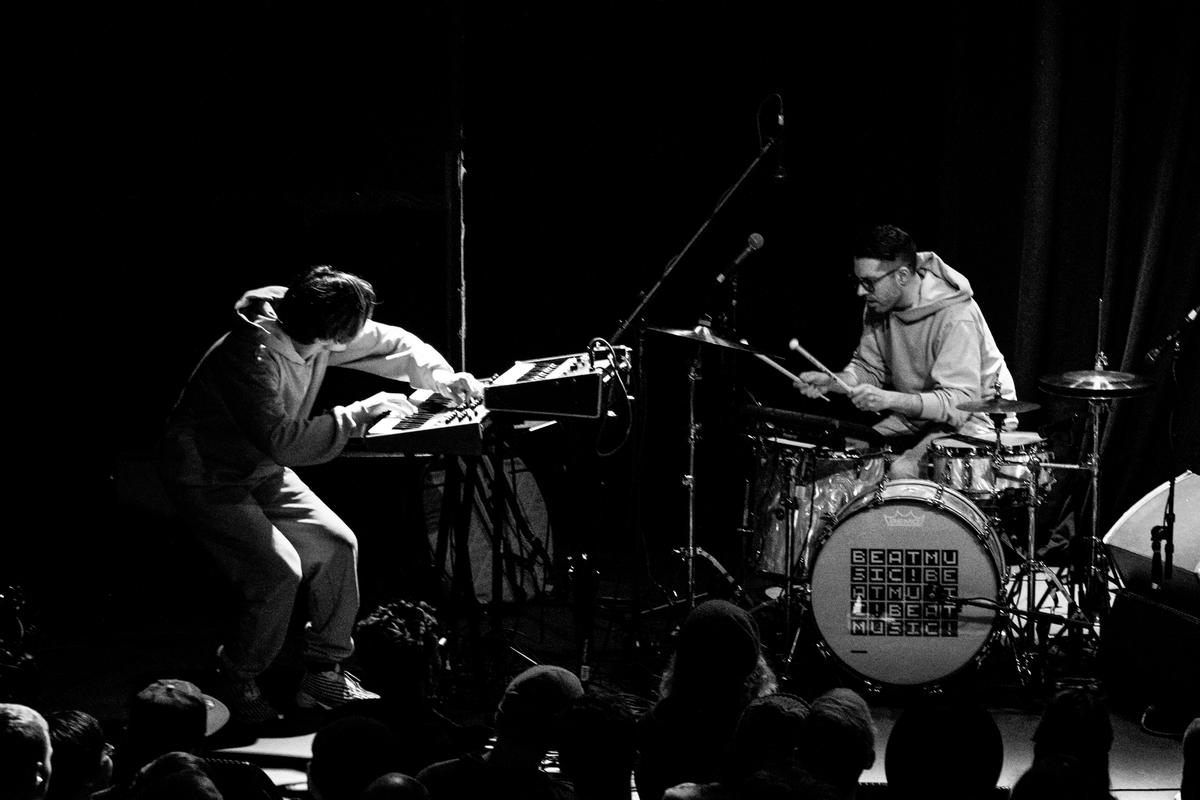Mark Guiliana’s Beat Music grabs a lot of attention for its innovative use of synths and sampling, along with its next-level rhythmic designs. But Guiliana, a groundbreaking drummer, drum programmer and composer, frames the whole project in terms of human connection.
This edition of The Checkout delves deep into Guiliana’s nuanced process of electronic music-making, and the values he seeks when creating a group sound. During a long and revealing conversation at his home in Madison, N.J., he talked about the importance of carefully selecting the right musicians, and some of the crucial wisdom that isn’t taught in jazz school.
Guiliana’s focus on a strong band dynamic, and his embrace by a genre-agnostic young audience, puts him on the same playing field as some acclaimed contemporaries — like Kamasi Washington in Los Angeles, Makaya McCraven in Chicago, and Shabaka Hutchings in London. They make up a far-flung yet close-knit global community of improvisers working to push the music forward.
And while electronic instruments and new technologies are part of the equation for those musicians, what binds them together is proof of concept, as Guiliana suggests. “It gets to a point where everybody can play, and then, when you get everybody into a room, then it’s like ‘Who do I want to hear play?’ And ‘Why do you want to hear them play?’” he says. “Those musicians are really carving out some real estate conceptually, and the sound is so important.”
Beat Music’s emphatic new studio album — Beat Music! Beat Music! Beat Music! (Motéma) — features a core of Guiliana collaborators like electric bassist Chris Morrissey and keyboardists BIGYUKI and Jason Lindner. (Along with Nick Semrad on synthesizers, they recently joined him at Rough Trade in Brooklyn.
“There is the bumper sticker you see sometimes, that ‘Drum machines have no soul,’” Guiliana argues. “That point is irrelevant. It’s ‘Who is in charge of that machine, and are they communicating their spirit through it?’ And, if not, then the machine has no soul, because the person isn’t injecting a soul. When I think of Squarepusher or Aphex Twin or these masters, that’s like John Coltrane being communicated through a saxophone.”








More Stories
CD review: George Benson – Dreams Do Come True: When George Benson Meets Robert Farnon – 2024: Video, CD cover
The band was tight as ever. The Warren Haynes Band cuts loose: Video, Photos
Interview with Alvin Queen: Feeling Good – I heard these tunes played by … Video, new CD cover, Photos